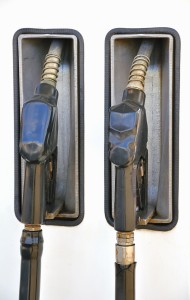
The increase in the availability of electric vehicles has the potential to disrupt the fuel retail operations of supermarket giants Woolworths and Coles, according to market research organisation IBISWorld.
Fuel retailers such as Woolworths Limited and Wesfarmers Limited (through its Coles Express brand) have a strong hold on the fuel retailing industry. IBISWorld expects the fuel retailing industry to grow at an annualised 0.6 per cent over the five years through 2014-15, reaching $41.1 billion, but the introduction of new players offering cheaper, more energy-efficient transport alternatives could complicate the situation moving forward.
Electric vehicle availability
Electric vehicle maker Tesla recently announced plans to deliver its cars and vehicle-charging infrastructure to Australian roads in 2015. Tesla’s products will join already-existing models from Nissan, Mitsubishi, Holden and BMW.
Electric vehicles require charging either at home or at public charging stations. Charging times vary depending on the vehicle – the Nissan Leaf, for example, takes about eight hours to charge, and gives a range of 135 kilometres. Charging times could be a deterrent to consumers looking to purchase an electric vehicle, particularly as such vehicles are competing with commercially successful hybrids. However, the new Tesla Model S takes just five hours to charge, and gives a range of around 480 kilometres. IBISWorld said this demonstrated that the technology is constantly improving.
Australian fuel retailers showing no signs of expanding to electric vehicles
To date, no fuel retailers in Australia have announced an intention to expand their current offering to include charging stations for electric vehicles. IBISWorld said fuel retailers had focused on innovating payment systems – such as introducing payment at the pump – rather than changing the method of fuel delivery.
Coles fuel growth to continue
One of Australia’s major supermarket groups Coles, a subsidiary of Perth-based conglomerate Wesfarmers Limited, has enjoyed success in fuel retailing and is in a strong position to withstand potential competition from electric vehicles.
According to IBISWorld, Coles’ revenue from fuel retailing is likely to exceed the industry’s five-year annualised growth of 0.6 per cent, with growth of an estimated 4.4 per cent per annum expected over the five years through 2014-15, to reach approximately $9.9 billion. Fuel discounts and improvements in convenience store offerings are driving this growth. In addition, Coles has continued to expand its operations and currently operates 630 petrol stations throughout Australia, indicating that the company does not expect a significant downturn in the demand for fuel.
Woolworths also looking to expand fuel retailing
Like Coles, Woolworths Limited is also looking to expand its fuel retailing operations, and currently operates about 600 petrol stations in Australia.
IBISWorld said this suggests a shared expectation among major fuel retailers that demand for fuel is unlikely to decrease. According to IBISWorld, Woolworths also has the financial strength to withstand any potential shift in consumer preferences towards electric vehicles, and its fuel retailing revenue is expected to grow by an annualised 3.4 per cent over the five years through 2014-15, rising to around $9.8 billion and outpacing the overall industry.
Fuel retailing business model may limit growth
IBISWorld said fuel retailers generate relatively low profit margins, earning only a few cents from each litre of petrol sold. Charging stations, however, can be powered by renewable energy. Operating a charging station requires an initial capital expenditure, but doesn’t require the ongoing purchase and supply of fuel, which currently absorbs around 87.5 per cent of retailers’ revenue.
Both Coles’ and Woolworths’ business models for fuel retailing are based on commercial alliances formed with major oil companies – Vitol (operating as Viva Energy, previously Shell) and Caltex, respectively. Under these arrangements, Coles and Woolworths lease petrol stations and purchase fuel from the oil companies. These agreements have greatly boosted both companies’ market share in the fuel retailing industry. Coles has a 24.0 per cent market share of fuel retailers, and Woolworths has 23.9 per cent.
However, IBISWorld said the commercial agreements in place with Viva Energy and Caltex may limit the potential to include charging stations in existing networks, even if the demand for fuel decreases and charging stations become commercially viable.
Electric vehicles may pose long-term problem for fuel retailers
While the entry of Tesla into the Australian market is unlikely to damage these retailers overnight, IBISWorld said the increasing presence of electric vehicles in the Australian market and a shift in consumer preferences towards fuel-efficient vehicles could present a long-term problem for fuel retailers that may need to be addressed in the coming years.





